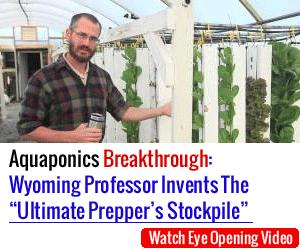As part of an effort to raise student consciousness aboutaquaponics and sustainable agriculture, a Michigan Technological University (MTU) researcher has developed and constructed a system on campus that is providing food for the school’s residence halls. Rob Handler was able to grow cherry tomatoes, kale, onions and basil in his garden, while also raising Tilapia to be used for fish tacos.
Handler is the operations manager of the Sustainable Futures Institute at MTU and his aquaponics system is educating students about the benefits of the process, which include higher yields, reduced water usage and the elimination of any pesticides or inorganic growing matter.
One interesting aspect of Handler’s aquaponics is that his crops are rooted in clay pebbles, rather than using soil. He says this enables the plants to grow shorter roots, as nutrients are more effectively distributed.
“We’ve grown cherry tomatoes that grew so tall I need to harvest them with a ladder,” Handler told Michigan Tech News. “It’s the same interaction that happens in the natural world. We are just managing things with tanks and pipes.”
The source points out that the practice of aquaponics traces back hundreds of years, when rice farmers in East Asia noticed they experienced better yields when they added fish to their rice paddies. The water the fish swim in is purified by the plant roots and soil, which benefit from the fish waste in the water. It creates a circular filtration system that requires very little water beyond the initial amount needed for the fish tank.
More importantly, an indoor aquaponics system can help lengthen what are normally very short planting and harvesting seasons in Michigan. Commercializing the practice could result in more local agriculture for the region, reducing their need to ship in produce and livestock from other parts of the country.
SOURCE : www.lifeisgreen.com

